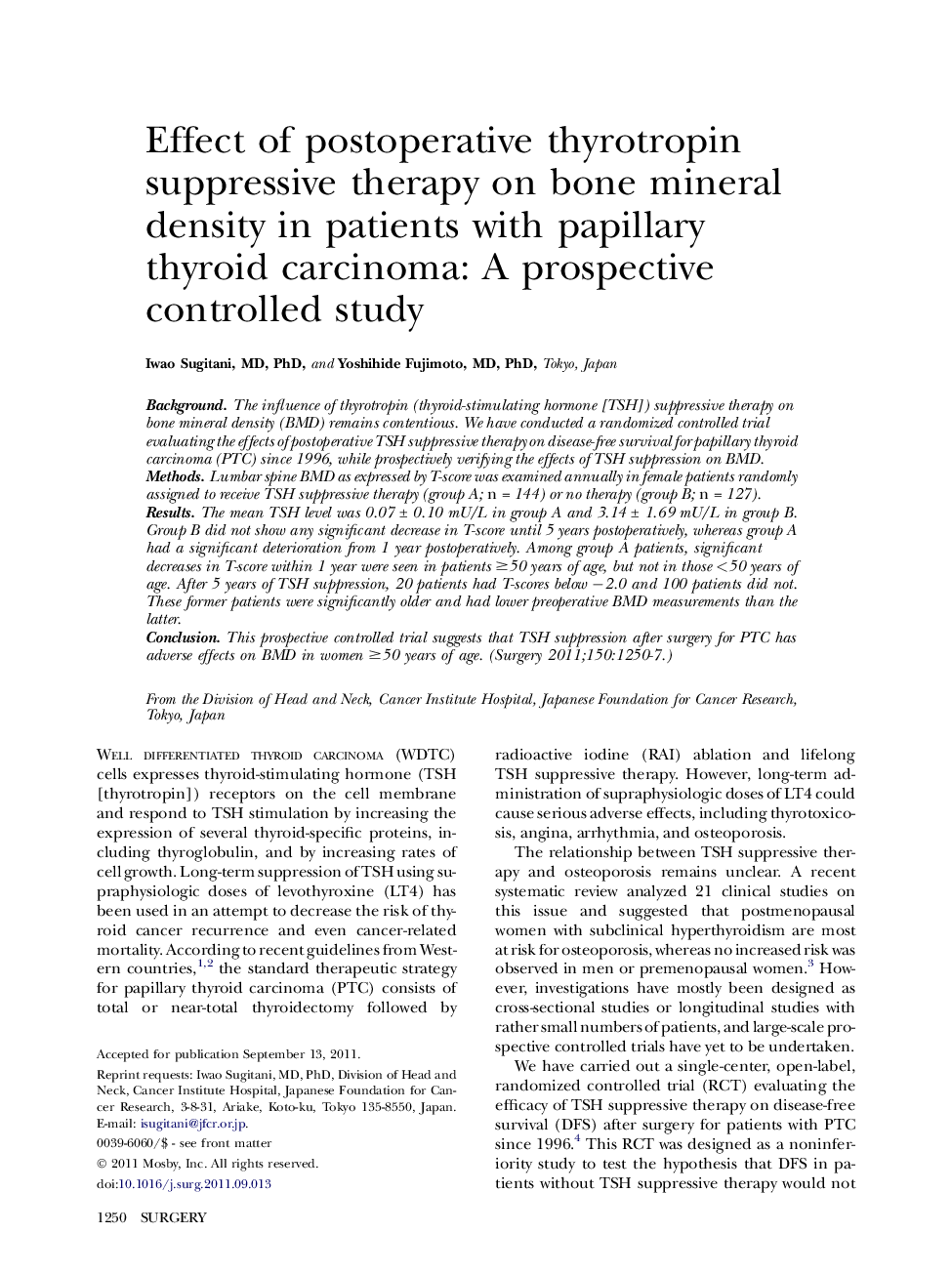| Article ID | Journal | Published Year | Pages | File Type |
|---|---|---|---|---|
| 4308411 | Surgery | 2011 | 8 Pages |
BackgroundThe influence of thyrotropin (thyroid-stimulating hormone [TSH]) suppressive therapy on bone mineral density (BMD) remains contentious. We have conducted a randomized controlled trial evaluating the effects of postoperative TSH suppressive therapy on disease-free survival for papillary thyroid carcinoma (PTC) since 1996, while prospectively verifying the effects of TSH suppression on BMD.MethodsLumbar spine BMD as expressed by T-score was examined annually in female patients randomly assigned to receive TSH suppressive therapy (group A; n = 144) or no therapy (group B; n = 127).ResultsThe mean TSH level was 0.07 ± 0.10 mU/L in group A and 3.14 ± 1.69 mU/L in group B. Group B did not show any significant decrease in T-score until 5 years postoperatively, whereas group A had a significant deterioration from 1 year postoperatively. Among group A patients, significant decreases in T-score within 1 year were seen in patients ≥50 years of age, but not in those <50 years of age. After 5 years of TSH suppression, 20 patients had T-scores below −2.0 and 100 patients did not. These former patients were significantly older and had lower preoperative BMD measurements than the latter.ConclusionThis prospective controlled trial suggests that TSH suppression after surgery for PTC has adverse effects on BMD in women ≥50 years of age.
